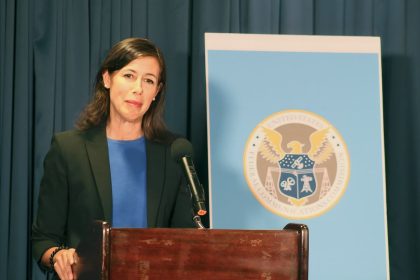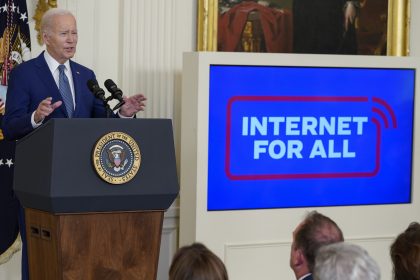States Should Regulate Broadband like a Utility, Say CWA Panelists

Broadband advocates called today for state regulatory frameworks to hold broadband providers accountable as they deploy services, particularly to underserved areas.
On the heels of the bipartisan infrastructure bill passing the House last week, panelists during a Common Cause and Communications Workers of America event noted that states need the legislative authority to ensure the services of internet providers actually reach those lacking connectivity.
“All we see is investment from corporations in the same affluent areas where they can get the biggest return on investment,” said Martin Szeliga, Broadband Brigade midwest lead at CWA. Local workers know the lay of the land in their communities and are best positioned to do the job, he explained, instead of hiring out-of-state contractors. Companies need to invest in locally trained workers and ensure dependable service.
He pointed to an incident in Houston, Texas, where a provider subcontracted placing a mile of cable. This “fly-by-night contractor” accidentally hit and knocked out the water lines of the entire Woodside neighborhood, he said, because “they simply do not have the relationship that local workers do” with the community and the land, he said.
Szeliga does not live in a remote part of the state of Michigan. He lives right next to the international airport and Dow Jones’ global headquarters, yet had to use a wireless jetpack to connect to today’s event. He also coordinates internet schedules with his family’s work and classroom Zoom meetings.
“There’s been this narrative going around that there are not enough workers to do that work that’s going to be created by this infrastructure funding,” said Brian Thorn, senior researcher at CWA. But the reality is that workers have been “laid off in record numbers … [and] the workforce to complete all of this work is ready and able to do this without additional training or apprenticeship programs,” he argued.
Nevertheless, absent broadband regulation and appropriate state oversight, Thorn said it will be “really difficult to achieve that build-out beyond what the companies want to do themselves.”
“We need some kind of regulation to help encourage wider deployment to the areas like where Marty lives,” Thorn added.
Some state public utility commissions have already begun treating broadband as a regulated utility, he said, as they have the authority to “take broadband regulation into their own hands … absent [Federal Communications Commission] oversight.” The California PUC already declared its authority over broadband, Colorado is looking at designating broadband as a utility, and lawmakers in Michigan and New York introduced a broadband regulations bill this year.
And states are continuing to play an increasing role, said Yosef Getachew, Media & Democracy program director at Common Cause. “There is a lot of interplay and intersectionality between deployments, funds that support deployment initiatives, [broadband] mapping and authority” over broadband regulation, he added. He pointed out that Georgia has begun to produce its own broadband maps with the level of data granularity needed for accurate deployment.
The pending package is a “strong down payment to addressing connectivity issues,” but contains grant programs that are not permanent, Getachew warned. States must learn to find permanent solutions for their communities by comprehensively addressing the three legs of the stool: access, affordability, and digital equity and inclusion.
“This is a pretty universal issue that bridges the gap between partisan politics. It’s very difficult to find somebody against affordable high-speed internet,” Szeliga said, particularly in the current age where even “the fridge has an IP address.” Ensuring and incentivizing providers to deploy the best networks to the necessary places from the get-go will pay off in the long run.
“If we take the steps now to do it right … it’ll pay dividends down the road and nothing bad can come from that initial investment,” he said.
Victoria can be reached at [email protected]























